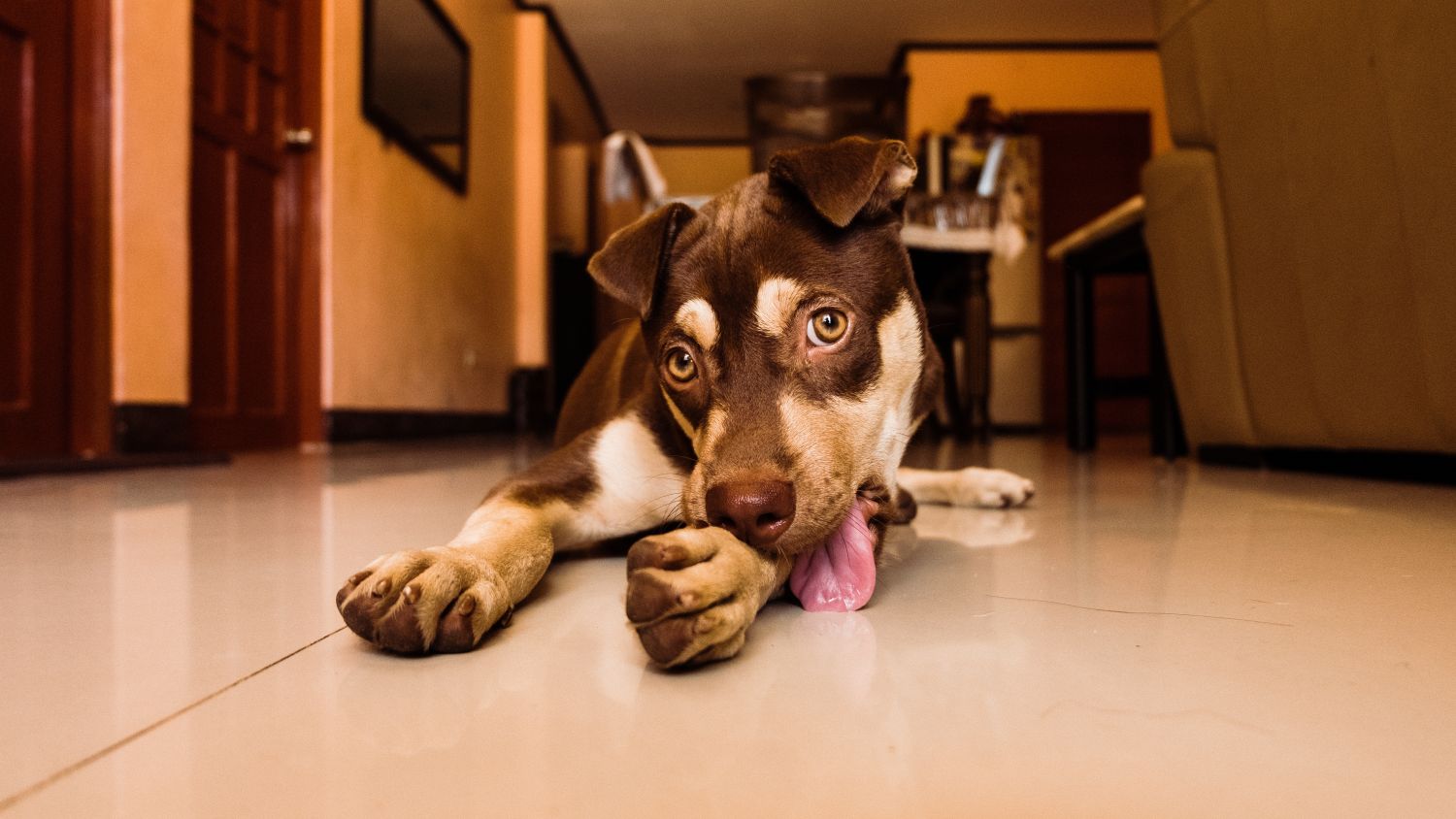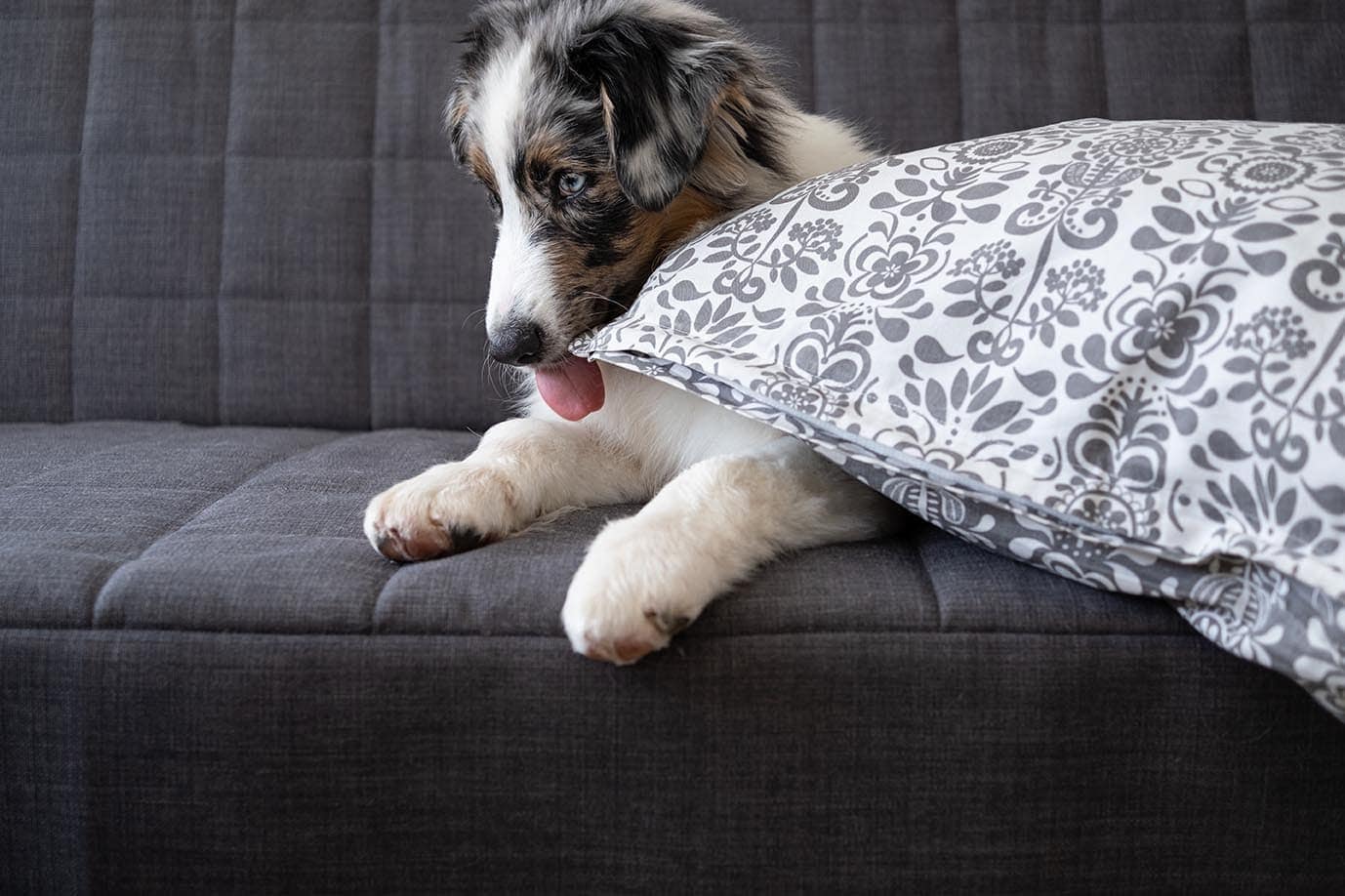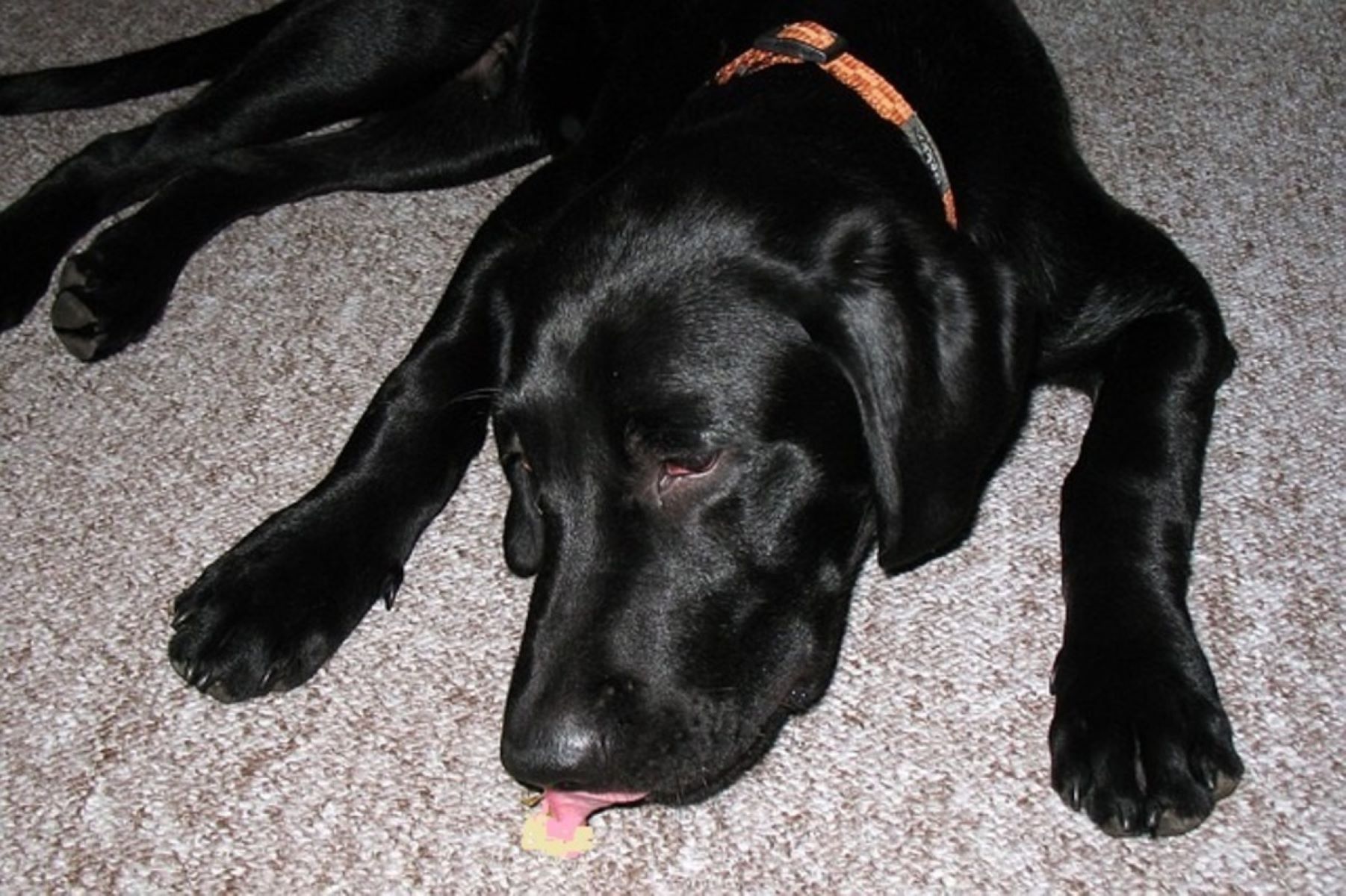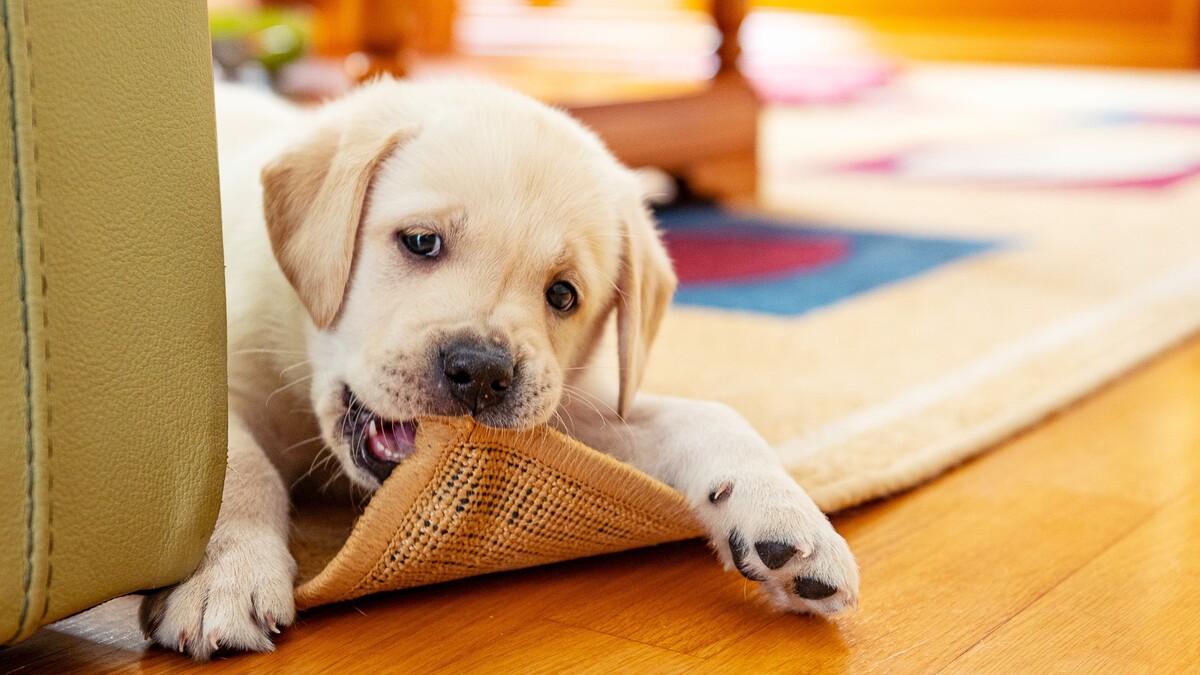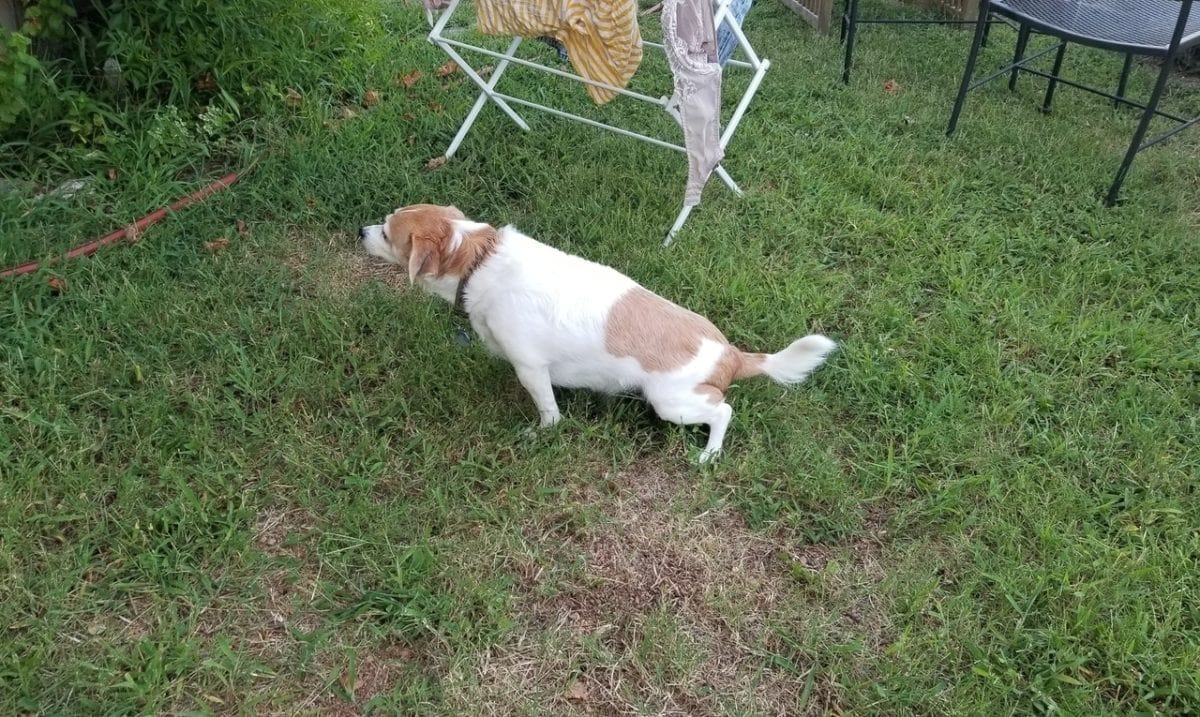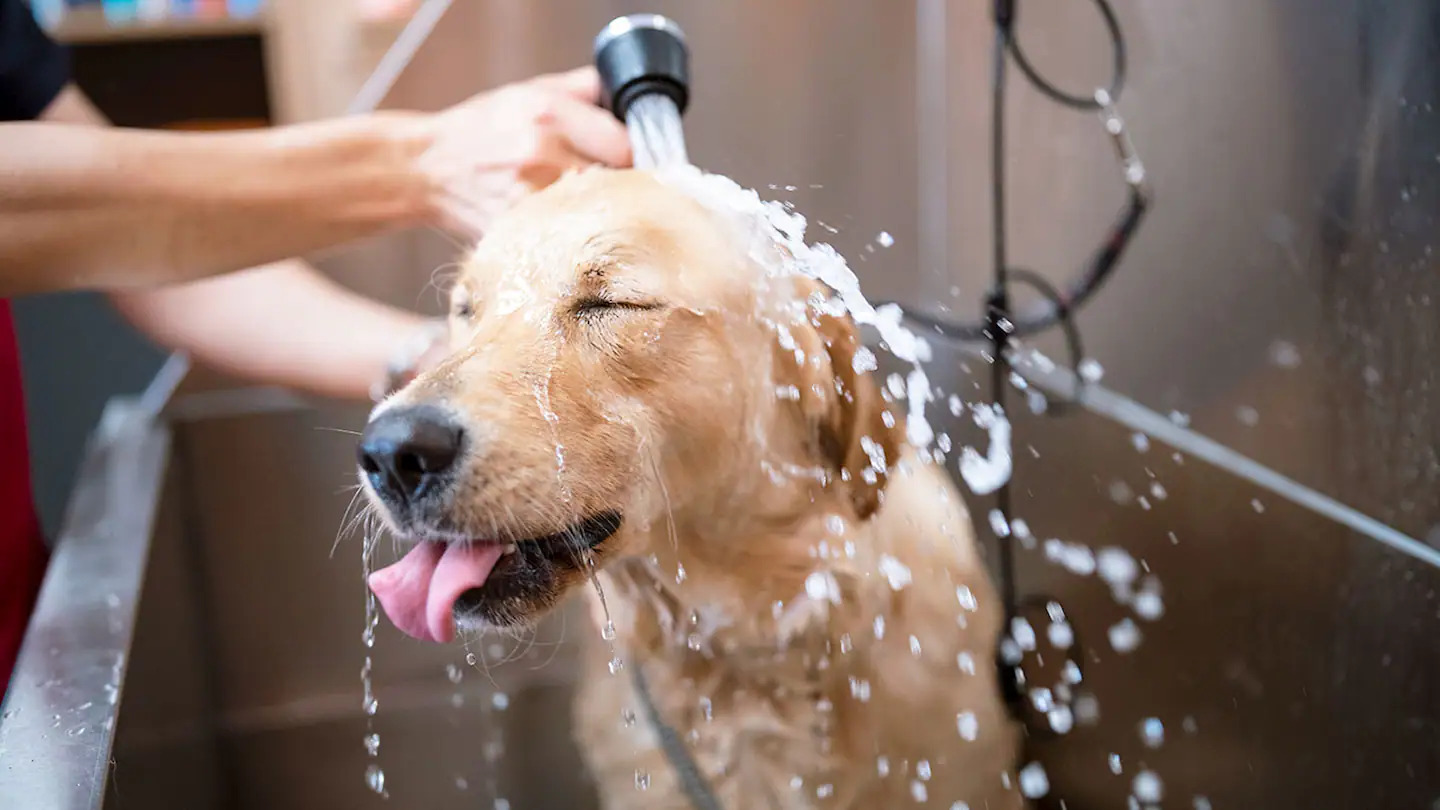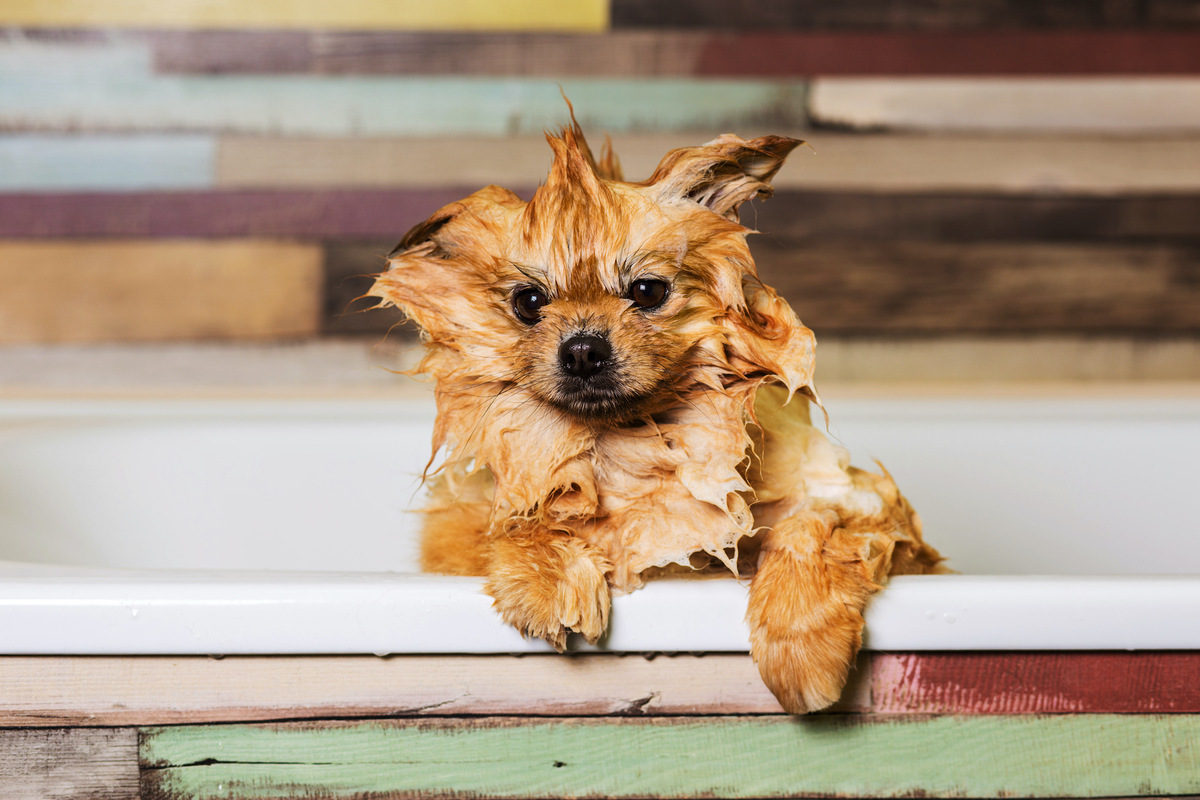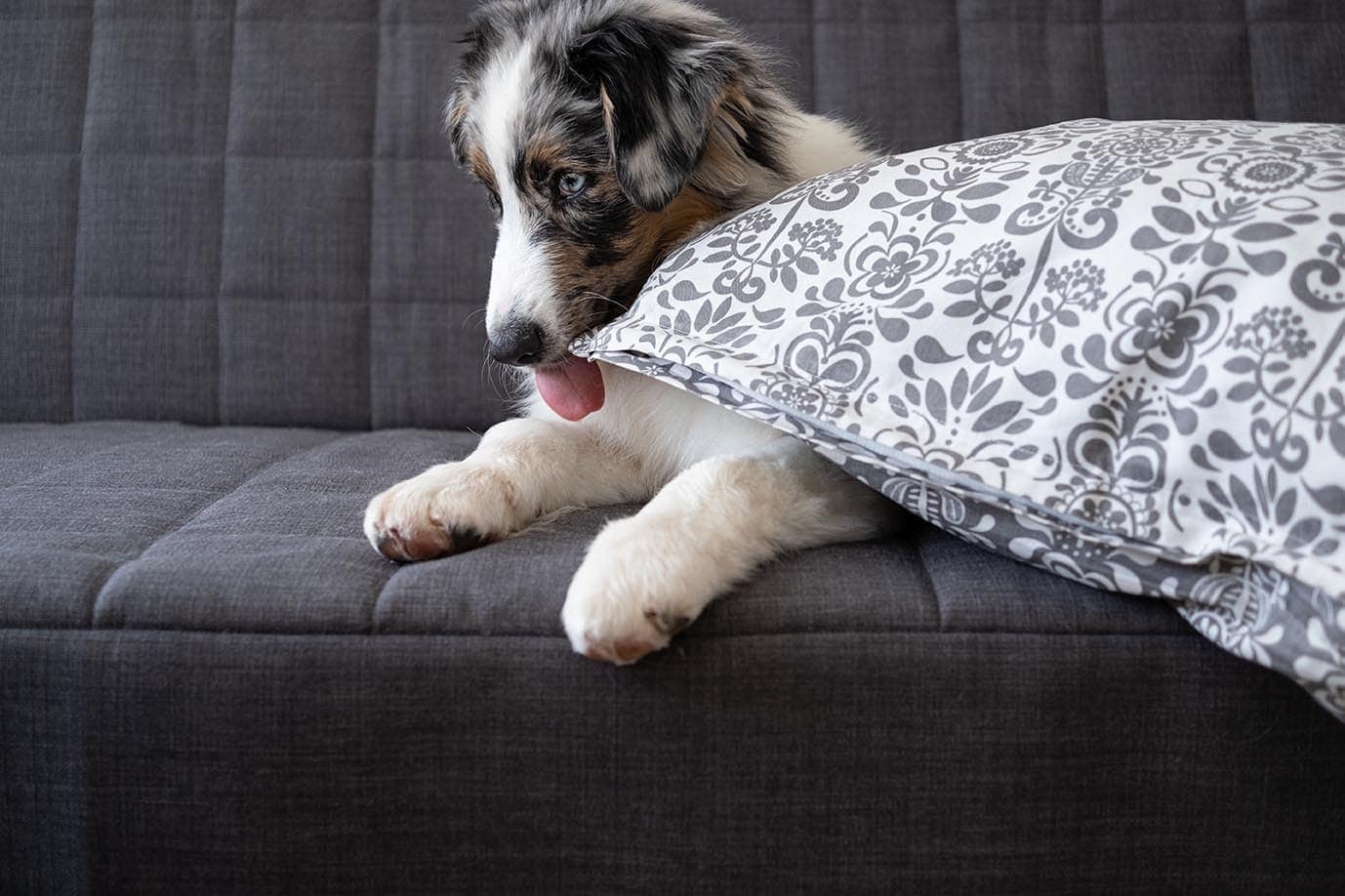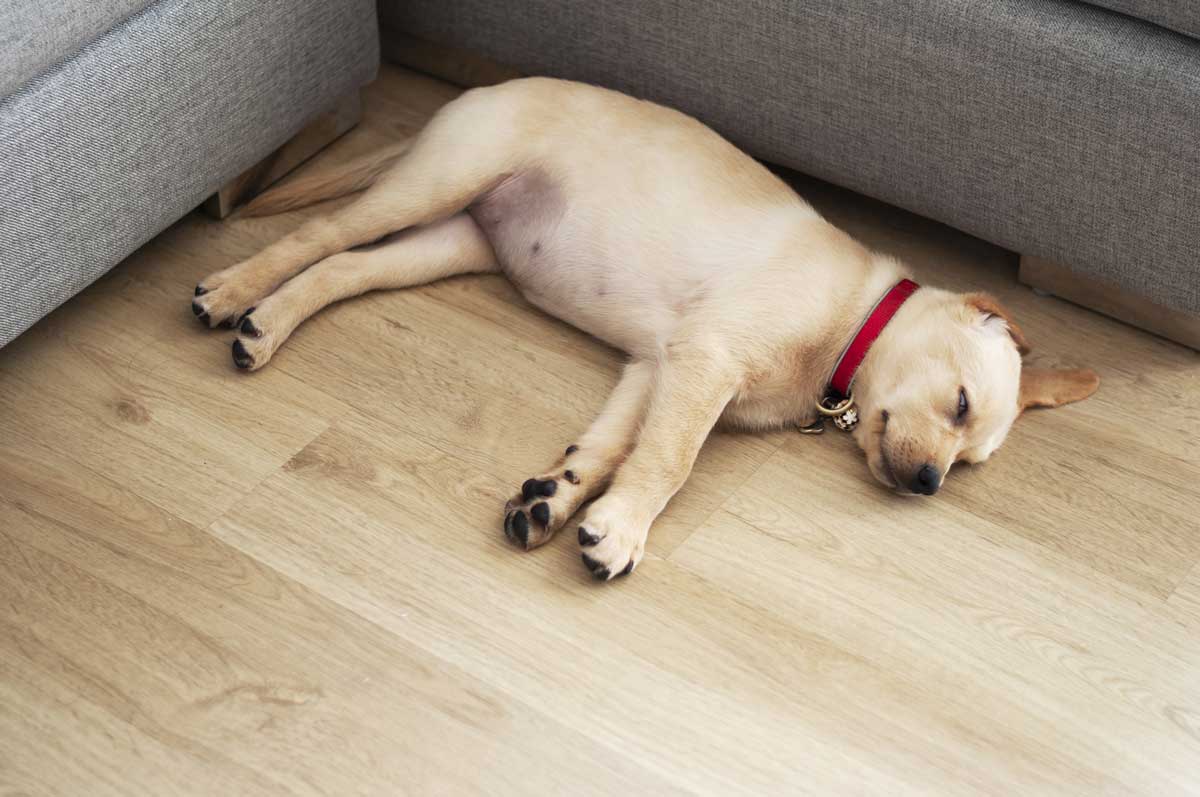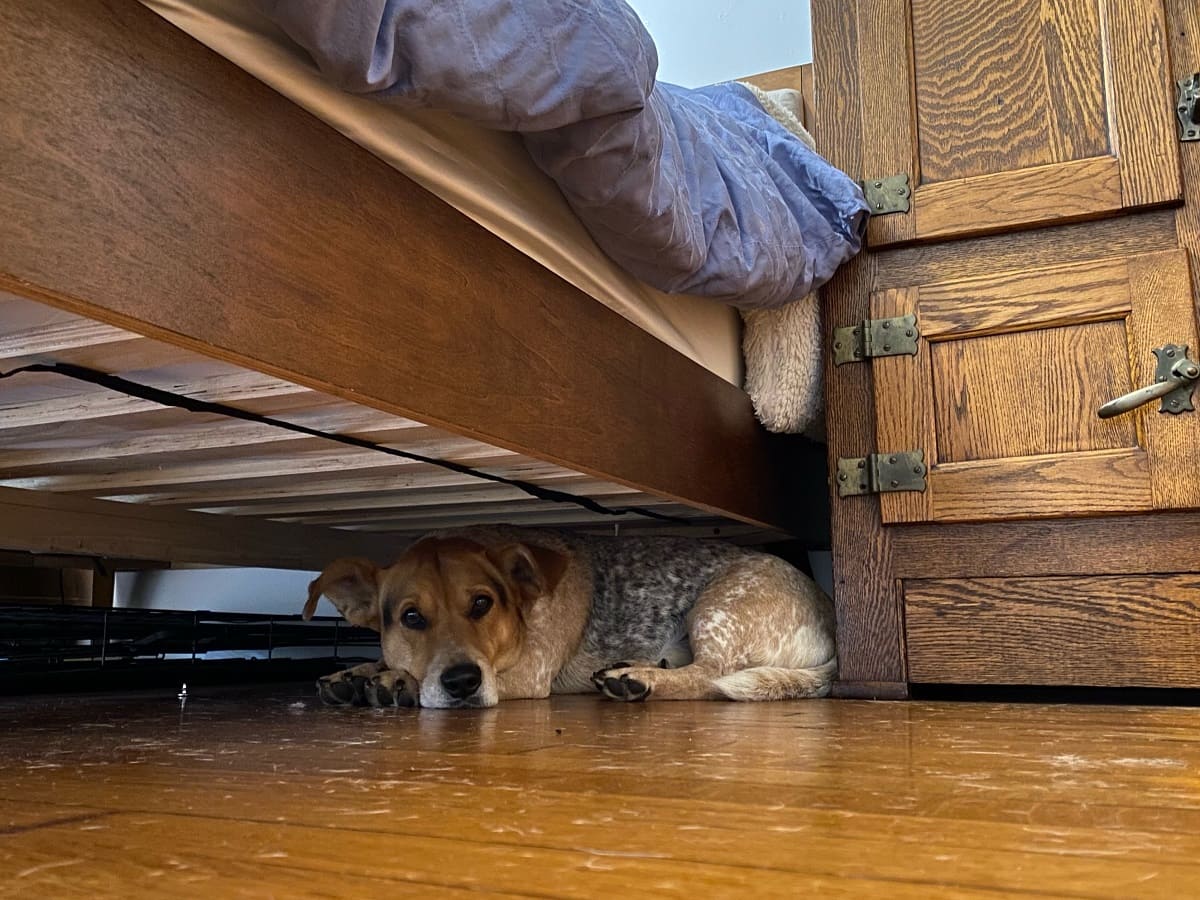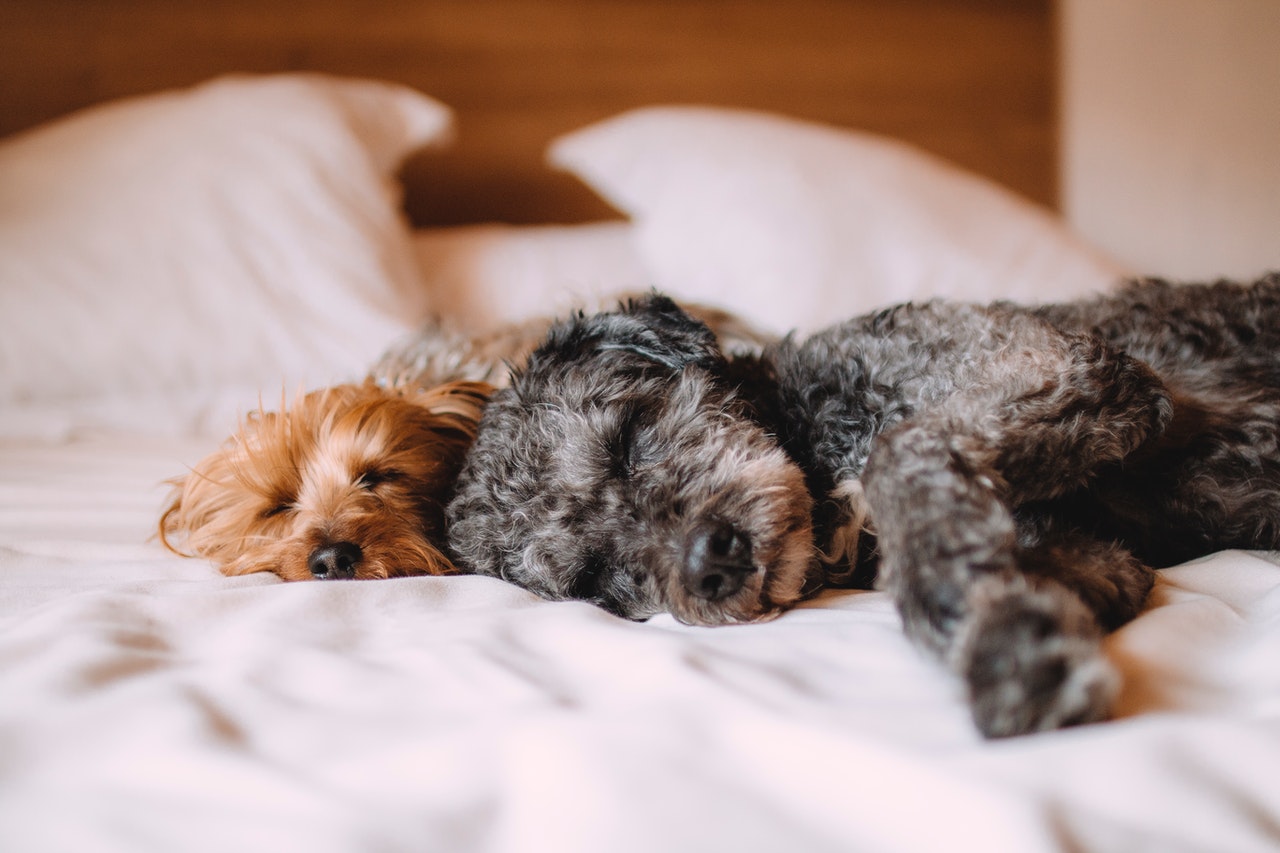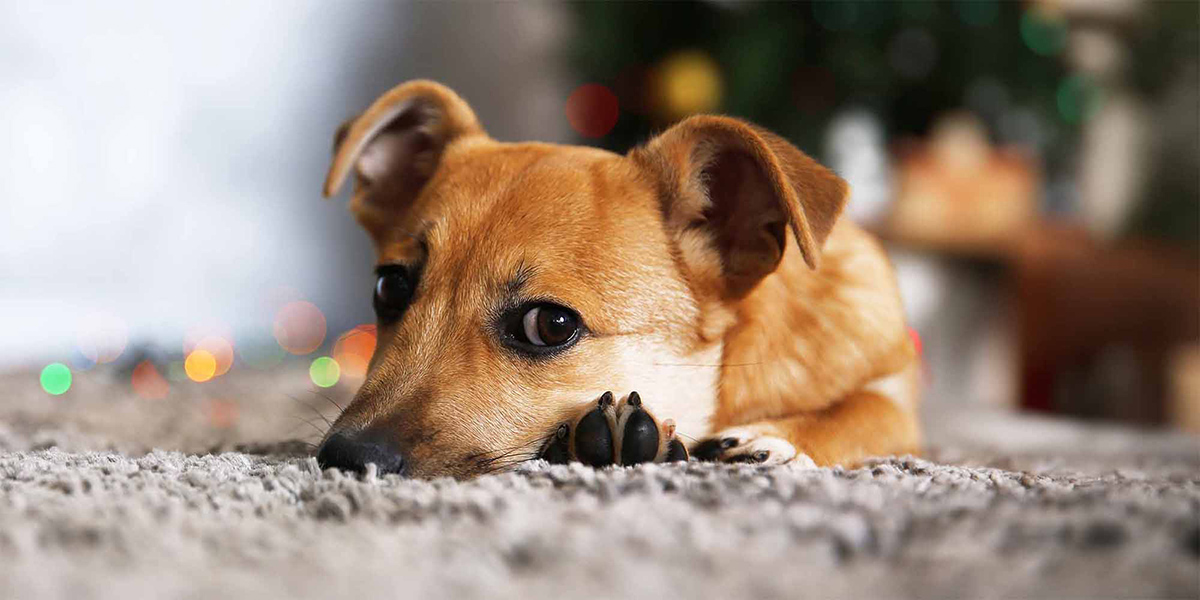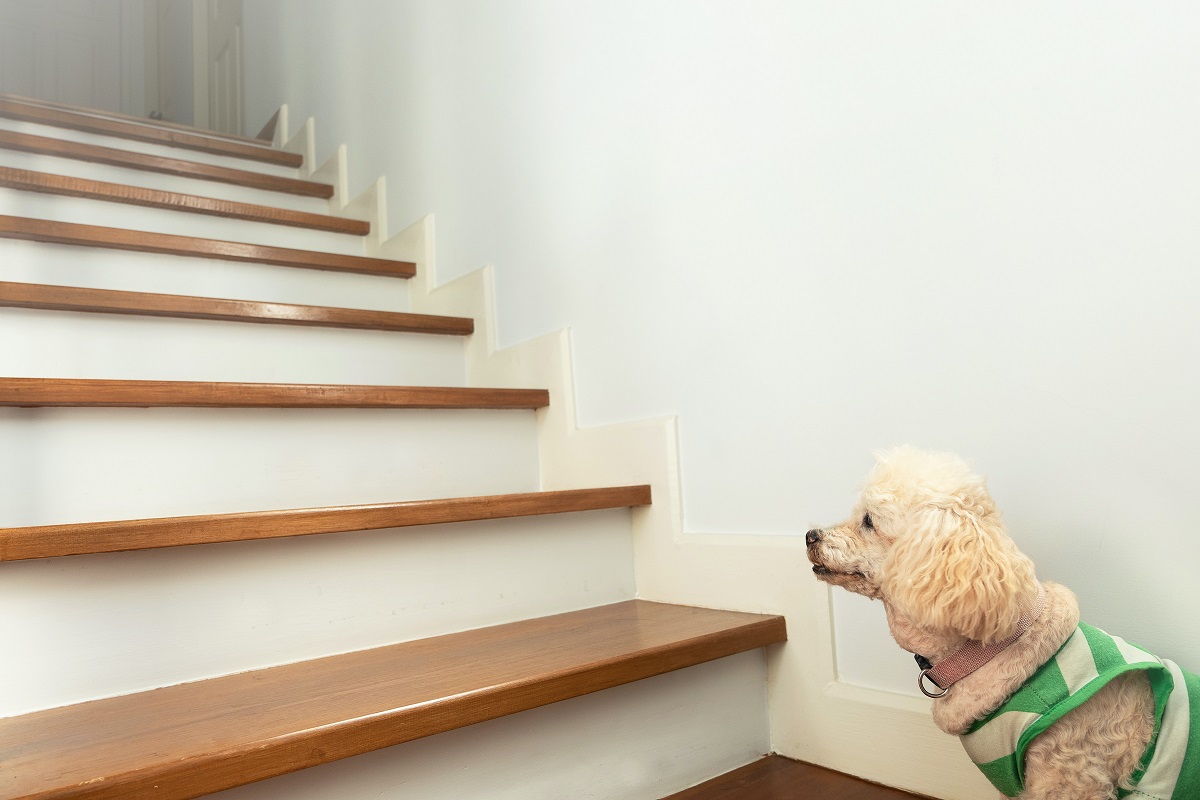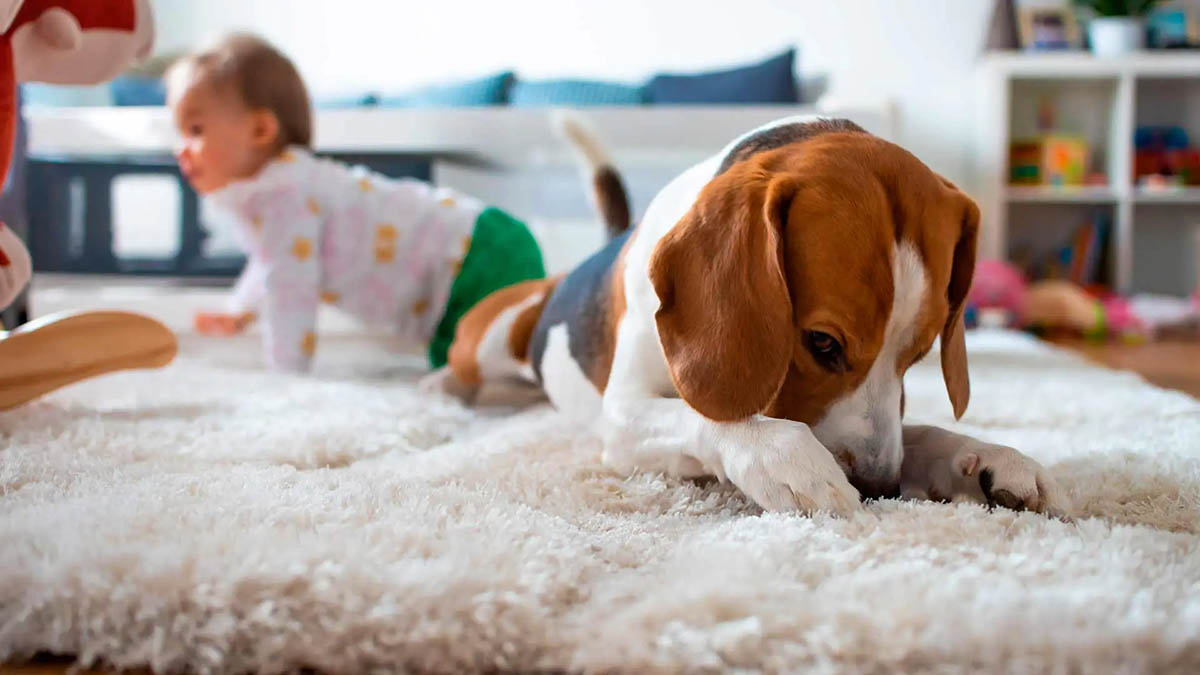

Articles
Why Does My Dog Obsessively Lick The Carpet
Modified: February 18, 2024
Discover the reasons why dogs have a tendency to obsessively lick the carpet in this informative collection of articles. Explore solutions to address this behavior in your furry friend.
(Many of the links in this article redirect to a specific reviewed product. Your purchase of these products through affiliate links helps to generate commission for Storables.com, at no extra cost. Learn more)
Introduction
Have you ever noticed your dog obsessively licking the carpet? It’s a common behavior that many dog owners experience, but have you ever wondered why your furry friend engages in this behavior? In this article, we will delve into the fascinating world of compulsive carpet licking in dogs and explore the possible reasons behind this peculiar habit.
Dogs use licking as a way to communicate and express themselves. It is a natural behavior that can serve various purposes, such as grooming, showing affection, or exploring their environment. However, when licking becomes excessive and focused on one specific surface like the carpet, it can indicate an underlying issue that needs attention.
Understanding the reasons behind compulsive carpet licking in dogs is crucial in order to address the behavior effectively. It’s essential to consider both medical and behavioral factors that may contribute to this behavior. By identifying the cause, you can provide proper care and support for your furry companion.
So, let’s dive in and discover the possible medical reasons and behavioral causes behind why your dog may be compulsively licking the carpet.
Key Takeaways:
- Compulsive carpet licking in dogs can be caused by medical issues like allergies, infections, and pain, as well as behavioral factors such as stress, boredom, and learned behaviors. Understanding these factors is crucial for effective intervention.
- Addressing compulsive licking behavior in dogs requires a multi-faceted approach, including medical evaluation, behavior modification techniques, and environmental adjustments. Each dog is unique, and patience and professional guidance are essential for success.
Read more: Why Is My Dog Licking The Carpet
Understanding compulsive licking behavior in dogs
Compulsive licking behavior in dogs refers to the repeated, excessive, and often uncontrollable licking of a specific object or surface, such as the carpet. It is important to differentiate this behavior from normal licking, as compulsive licking is often repetitive, driven by an underlying compulsion, and can interfere with a dog’s daily activities.
There are several possible reasons behind compulsive licking behavior in dogs. It can stem from medical or physical issues, as well as behavioral factors:
- Medical Reasons: It’s important to rule out any underlying medical conditions before addressing compulsive licking behavior. Some common medical causes include allergies, skin irritations, infections, pain, gastrointestinal problems, or neurological disorders. If you notice that your dog’s carpet licking is accompanied by other symptoms such as skin redness, swelling, hair loss, or changes in appetite or behavior, it’s crucial to consult with your veterinarian for a proper diagnosis.
- Stress and Anxiety: Dogs, just like humans, can experience stress and anxiety. Compulsive licking can be a coping mechanism for dogs experiencing fear, separation anxiety, or other stressful situations. It provides them with a sense of comfort and can temporarily alleviate their anxiety. Identifying and addressing the underlying stressors and implementing behavior modification techniques can help reduce the compulsive licking behavior.
- Boredom or Lack of Stimulation: Dogs are social creatures that require mental and physical stimulation. If a dog is lacking in exercise, playtime, and interaction, they can resort to self-soothing behaviors like compulsive licking. Providing your dog with regular exercise, mental stimulation through games and puzzles, and ensuring they have proper socialization can help prevent boredom and redirect their focus away from the carpet.
- Learned Behavior: Sometimes, dogs engage in compulsive behaviors because they have learned that it provides them with attention or rewards. For example, if your dog licks the carpet and you react by giving them attention or treats, they may continue engaging in this behavior to seek reinforcement. It’s important to break this cycle by redirecting their attention to more desirable behaviors and rewarding them for engaging in those instead.
Understanding the underlying reasons for your dog’s compulsive licking behavior is the first step towards addressing it effectively. By working closely with your veterinarian and employing appropriate behavior modification techniques, you can help your furry friend overcome this habit and ensure their overall well-being and happiness.
Possible medical reasons for excessive licking
When your dog exhibits excessive licking behavior, it is important to consider potential medical reasons that may be contributing to this behavior. Below are some common medical causes of excessive licking in dogs:
- Allergies: Dogs can develop allergies to various substances, including certain foods, environmental allergens, or even grooming products. Allergic reactions can cause itchiness and discomfort, leading to excessive licking in an attempt to soothe the irritated skin. If you suspect allergies, your veterinarian can perform tests to identify the specific allergen and recommend appropriate treatment options.
- Skin infections: Bacterial or fungal infections can cause itching and irritation on your dog’s skin, prompting them to excessively lick the affected areas. These infections can be a result of underlying issues such as allergies, flea infestations, or poor grooming habits. Your veterinarian can diagnose and treat the infection accordingly.
- Parasites: Fleas, ticks, mites, or other external parasites can irritate your dog’s skin and cause intense itching. Dogs may engage in excessive licking to relieve the discomfort caused by these parasites. Regular preventative measures, such as flea and tick control, can help prevent infestations and subsequent licking behavior.
- Pain or discomfort: Dogs may lick the carpet excessively when they are experiencing pain or discomfort in their bodies. This could be due to dental problems, arthritis, gastrointestinal issues, or other underlying medical conditions. It is essential to consult with your veterinarian to identify and treat any underlying sources of pain or discomfort.
- Neurological disorders: Certain neurological conditions can manifest as compulsive behaviors, including excessive licking. Conditions such as Cushing’s disease or obsessive-compulsive disorder (OCD) can contribute to this behavior. Diagnostic tests and professional guidance from a veterinarian or veterinary behaviorist are necessary for proper evaluation and treatment of these conditions.
If you suspect that a medical issue is causing your dog’s excessive licking, it is crucial to seek veterinary advice. Your veterinarian can perform a thorough examination, conduct diagnostic tests, and recommend appropriate treatment options to alleviate the underlying medical condition and help reduce the excessive licking behavior.
Remember, ruling out medical causes is an important step in addressing compulsive licking behavior in dogs. By addressing any underlying medical issues, you can provide your dog with the relief they need and improve their overall well-being.
Provide your dog with plenty of mental and physical stimulation to reduce their need to lick the carpet. This can include interactive toys, puzzle feeders, and regular exercise.
Behavioral causes of carpet licking
While medical reasons can contribute to excessive carpet licking in dogs, it is also important to consider behavioral factors that may be at play. Understanding these behavioral causes can help address the underlying issues and modify your dog’s behavior effectively. Here are some common behavioral causes of carpet licking:
- Anxiety and stress: Dogs can engage in compulsive licking as a response to anxiety or stress. It can be triggered by various factors, such as changes in the environment, separation anxiety, or fear. Licking provides a soothing effect for dogs, releasing endorphins that temporarily alleviate their anxious feelings. Identifying the triggers and implementing stress-reducing techniques, such as desensitization and counter-conditioning, can help reduce compulsive licking behavior.
- Boredom and lack of stimulation: Dogs require mental and physical stimulation to keep them engaged and prevent boredom. If a dog lacks proper exercise, playtime, and mental stimulation, they may resort to compulsive behaviors like licking the carpet. Providing daily exercise, interactive toys, and engaging activities can help redirect their energy and keep them mentally stimulated.
- Attention-seeking behavior: Dogs are social animals that crave attention and interaction from their owners. If your dog has learned that compulsive licking attracts your attention or results in rewards, they may continue engaging in this behavior to seek your response. Ignoring the behavior and redirecting their attention to alternative, more desirable behaviors can help discourage the attention-seeking aspect of carpet licking.
- Repetitive behavior: Dogs are creatures of habit, and they may engage in compulsive licking out of habit or ritualistic behavior. This can be the result of the licking behavior being reinforced in the past, or it may simply be a self-reinforcing behavior that the dog finds comforting. Breaking this repetitive cycle requires redirecting their attention to alternative activities and providing positive reinforcement for engaging in those behaviors instead.
- Compulsive disorders: Some dogs may develop compulsive disorders, such as obsessive-compulsive disorder (OCD), which can manifest as repetitive and focused behavior, including compulsive licking. These disorders often require professional intervention from a veterinarian or veterinary behaviorist who can provide a comprehensive treatment plan tailored to the individual dog’s needs.
Understanding the underlying behavioral causes of your dog’s compulsive carpet licking is crucial for addressing the behavior effectively. By providing proper mental and physical stimulation, managing anxiety and stress, and redirecting their attention to more appropriate behaviors, you can help your dog break the habit and lead a happier, more balanced life.
How to address compulsive licking behavior in dogs
If your dog is engaging in compulsive licking behavior, there are several steps you can take to address and manage this behavior. Remember that each dog is unique, and what works for one may not work for another. Here are some general strategies to help address compulsive licking behavior in dogs:
- Consult with a veterinarian: Before addressing the behavior, it’s important to rule out any underlying medical conditions that may be causing or contributing to the licking behavior. Your veterinarian can perform a thorough examination, conduct necessary tests, and provide appropriate treatment if needed.
- Provide mental and physical stimulation: Ensuring that your dog receives enough mental and physical stimulation can help redirect their energy away from compulsive licking. Engage your dog in regular exercise, play interactive games, and provide puzzle toys or food-dispensing toys to keep their mind occupied and their body active.
- Implement behavior modification techniques: If the licking behavior is primarily driven by anxiety or stress, implementing behavior modification techniques can be helpful. This may include desensitization, counter-conditioning, and positive reinforcement training. Working with a professional dog trainer or veterinary behaviorist can provide guidance on specific techniques and strategies for your individual dog.
- Avoid reinforcing the behavior: It’s important to avoid unintentionally reinforcing the licking behavior. This means refraining from giving attention or treats when your dog is engaging in compulsive licking. Instead, redirect their attention to appropriate and desirable behaviors, and reward them when they engage in those behaviors.
- Consider environmental changes: Assessing and modifying your dog’s environment can help reduce stress and anxiety. This may involve creating a safe and comfortable space for your dog, providing a predictable routine, using calming aids such as pheromone diffusers, or using therapeutic tools like anxiety wraps or calming music.
- Seek professional help if needed: In some cases, compulsive licking behavior may be more challenging to address without professional guidance. A veterinary behaviorist or certified dog trainer experienced in behavior modification can provide a comprehensive treatment plan tailored to your dog’s specific needs.
Addressing compulsive licking behavior in dogs can be a gradual process that requires patience, consistency, and understanding. It’s important to remember that progress may take time and that each dog is unique. By combining medical care, behavior modification techniques, and environmental adjustments, you can help your furry friend overcome their compulsive licking behavior and improve their overall well-being.
Read more: Why Does My Dog Lick Furniture
Conclusion
Compulsive licking behavior in dogs, especially when focused on the carpet, can be a puzzling and concerning habit for dog owners. Understanding the potential reasons behind this behavior is crucial in order to address it effectively and provide your furry friend with the care and support they need.
In this article, we explored the various factors that can contribute to compulsive licking behavior in dogs. We discussed both medical and behavioral causes, highlighting the importance of ruling out any underlying medical conditions with the help of a veterinarian. Allergies, infections, pain, stress, and anxiety are just a few examples of the medical reasons that can lead to excessive carpet licking in dogs.
On the behavioral side, we discussed how boredom, anxiety, attention-seeking, and learned behaviors can trigger or perpetuate compulsive licking. By identifying the underlying causes and implementing appropriate strategies, such as providing mental and physical stimulation, behavior modification techniques, and environmental changes, we can help our dogs overcome this behavior and lead happier, healthier lives.
It’s important to remember that addressing compulsive licking behavior in dogs is not a one-size-fits-all approach. Each dog is unique, and what works for one may not work for another. It may take time, patience, and professional guidance to successfully modify the behavior. Consulting with a veterinarian or veterinary behaviorist can provide insight into your specific situation and offer tailored recommendations.
By being proactive and attentive to our dogs’ needs, we can help them overcome compulsive licking behavior and ensure their overall well-being. Remember to provide proper medical care, engage in behavior modification techniques, and create a nurturing and stimulating environment for your beloved canine companion.
So, the next time you see your dog obsessively licking the carpet, approach the behavior with curiosity, understanding, and a commitment to finding the underlying causes. With your love and support, your furry friend can overcome this behavior and continue to bring joy and companionship into your life.
Frequently Asked Questions about Why Does My Dog Obsessively Lick The Carpet
Was this page helpful?
At Storables.com, we guarantee accurate and reliable information. Our content, validated by Expert Board Contributors, is crafted following stringent Editorial Policies. We're committed to providing you with well-researched, expert-backed insights for all your informational needs.
